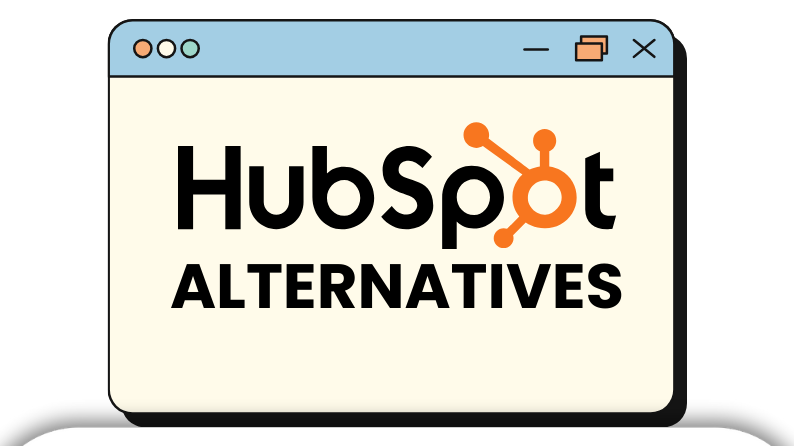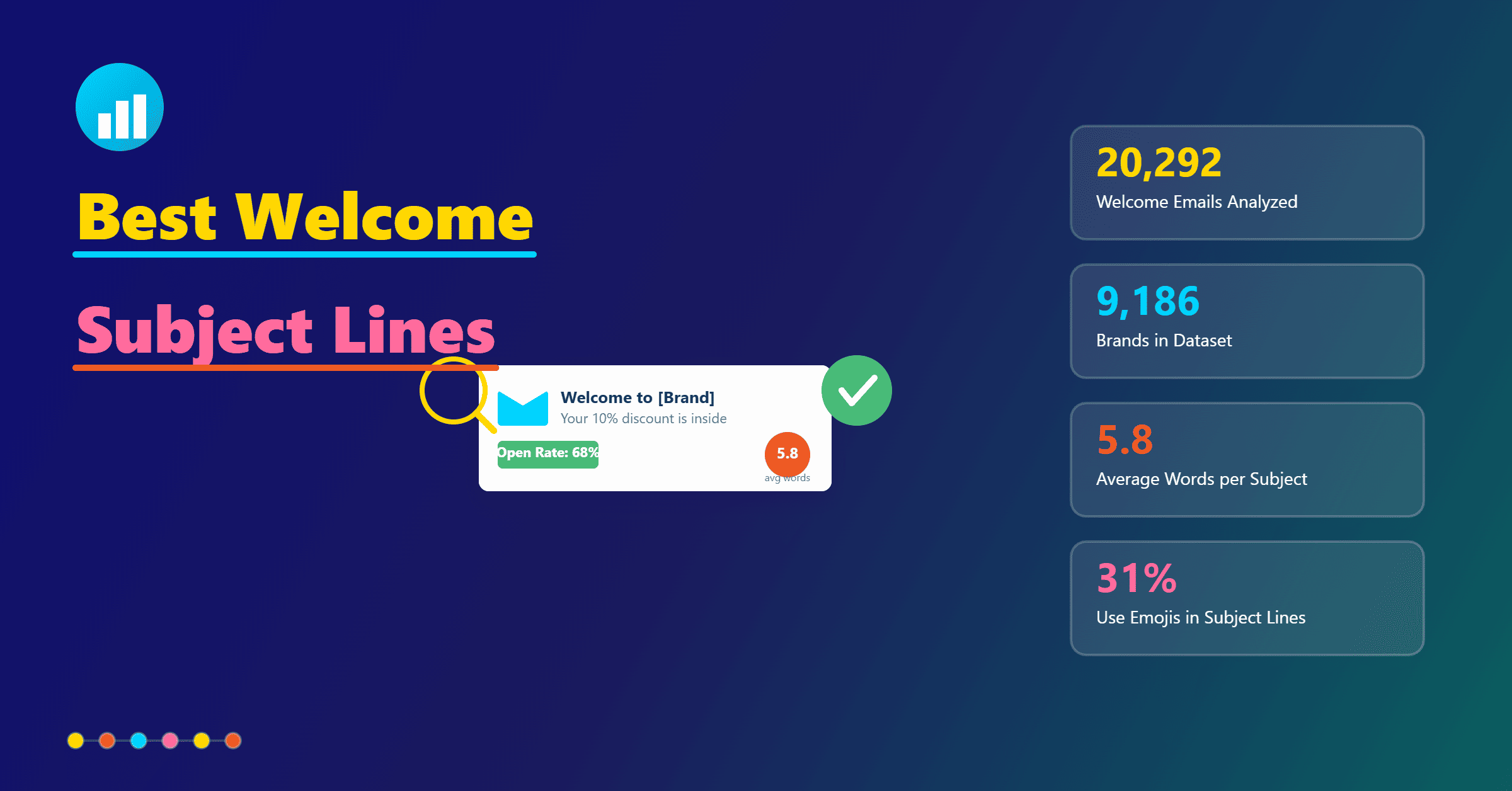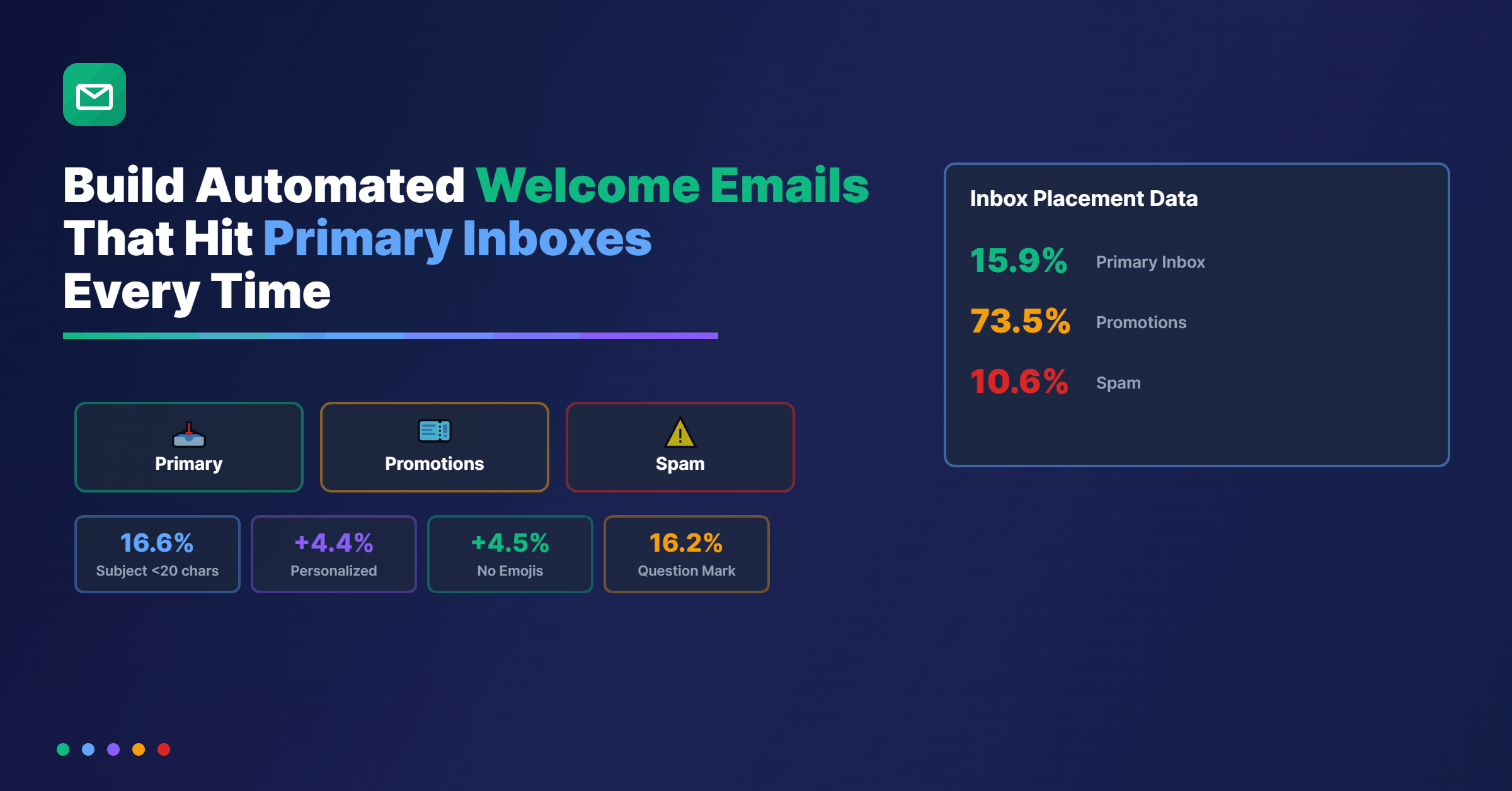For years, HubSpot has been a dominant force in marketing automation — widely adopted by startups, SMBs, and enterprises alike.
But as ecommerce grows more competitive, many businesses are rethinking whether HubSpot is the right fit for their needs and looking for the best HubSpot alternatives today. The most common frustrations? Steep pricing tiers, added complexity that slows down smaller teams, and feature limitations that don’t always scale with ecommerce demands.
This guide is designed for e-commerce marketers, agencies, and business owners who want a clearer picture of what’s available beyond HubSpot.
We’ll break down the top 10 HubSpot alternatives for 2025 — with pros, cons, and affordability insights — so you can confidently choose the platform that aligns with your store’s growth goals.
What to Look For in HubSpot Alternatives?
1. CRM Capabilities
A strong CRM foundation, centralized contact records, lead scoring, and deal pipelines are a must-have. It ensures every customer interaction is accessible and actionable. TechRadar highlights that integration and usability remain critical when evaluating CRMs, bridging teams and tools more efficiently.
2. Marketing Automation
Look for platforms that streamline campaign creation with automated workflows, behavior-triggered emails, and analytics reporting. Effective marketing automation boosts personalization and campaign efficiency across channels.
3. Sales Pipeline Management
A clear visual pipeline (e.g., Kanban board) helps teams track deal status, prioritize outreach, and maintain consistent follow-ups. Analytics around pipeline movement support informed decision-making and forecasting.
4. AI Features
AI is no longer optional—leading platforms now offer predictive lead scoring, smart segmentation, AI‑driven copy generation, and tailored send-time optimization. These features maximize campaign relevance and ROI.
5. Pricing Flexibility
HubSpot’s pricing tiers can escalate quickly, especially for fast‑growing stores. Alternatives that offer modular pricing, usage-based tiers, or affordable entry-level plans let you scale without breaking the bank.
6. Integration Ecosystem
Your tool should play nicely with your tech stack—like Shopify, WooCommerce, Zapier, analytics tools, and more. A robust integration ecosystem reduces manual work and unifies customer data.
With these six criteria—CRM, automation, sales pipeline, AI, pricing, and integrations—let’s see how HubSpot stacks up against its competitors.
The Best HubSpot Alternatives: Feature Comparison Table
| Platform | Standout Features & Strengths | Best For |
|---|---|---|
| TargetBay Email & SMS | All-in-one eCommerce platform combining email, SMS, reviews, and loyalty. AI-powered subject lines, send-time optimization, two-way SMS, MMS, dynamic coupons, and deep integrations with Shopify, WooCommerce, BigCommerce, TikTok Shop, and Walmart. Includes BayReviews & BayRewards for trust and retention. | Complete growth suite for e-commerce (email, SMS, reviews, loyalty) with strong AI automation. |
| ActiveCampaign | Powerful marketing automation, AI-driven optimization, predictive sending, and advanced segmentation with drag-and-drop workflows. | Best-in-class automation and personalization at scale. |
| Zoho CRM | Affordable all-in-one CRM with AI insights, omnichannel communication, and Kanban project views. | Budget-friendly CRM + marketing for SMBs. |
| Encharge | Behavioral automation tailored for SaaS and eCommerce; flexible workflows for customer journeys. | Behavior-triggered automation for SaaS/eCommerce. |
| EngageBay | Free CRM + marketing suite with email, chat, landing pages, and automation in one place. | Low-cost HubSpot-style suite for startups and small teams. |
| DevRev | Developer-focused CRM centered on product support, issue resolution, and customer alignment. | Support-driven CRM for product-led/dev-centric companies. |
| Pipedrive | Sales-centric CRM with intuitive pipeline views, activity reminders, and AI-powered deal recommendations. | Pipeline-first CRM for focused sales teams. |
| Salesforce | Enterprise-grade CRM with vast customization, AI (Einstein), advanced analytics, and a massive integration ecosystem. | Enterprise-grade customization for large organizations. |
| Freshsales | Affordable CRM with Freddy AI assistant, built-in telephony, and Kanban pipeline management. | Easy-to-use CRM with calling + AI for SMBs. |
| Mailchimp | Beginner-friendly email platform with templates, landing pages, reporting, and basic CRM features. | Email simplicity for small businesses. |
Top 10 HubSpot Alternatives for 2025
- TargetBay Email & SMS – All-in-one eCommerce suite with AI email, SMS, reviews, and loyalty.
- ActiveCampaign – Leading platform for marketing automation and personalization.
- Zoho CRM – Affordable all-rounder with AI insights and omnichannel support.
- Encharge – Behavioral automation tailored for SaaS and eCommerce.
- EngageBay – Free HubSpot-style suite for startups and small teams.
- DevRev – Developer-focused CRM for product and support workflows.
- Pipedrive – Visual sales CRM with pipelines and AI deal suggestions.
- Salesforce – Enterprise-grade CRM with deep customization and AI.
- Freshsales – Budget-friendly CRM with built-in telephony and AI.
- Mailchimp – Easy-to-use platform for email marketing and basic CRM.
1. TargetBay Email and SMS Marketing
TargetBay is an all‑in‑one ecommerce marketing suite combining email, SMS, reviews, and loyalty tools.
It features AI‑driven campaigns, dynamic coupons, and comprehensive integrations with platforms like Shopify, BigCommerce, and TikTok Shop—making it a seamless growth engine for online retailers.
Ratings
Capterra & GetApp: ~4.8/5; G2: ~4.7–4.9/5 reflecting strong user satisfaction and performance.
Key Features
- AI‑powered email & SMS creation, personalization, and send‑time optimization.
- Built‑in reviews (BayReviews), including picture/video UGC + loyalty programs (BayRewards).
- Drag‑and‑drop campaign builder with email/SMS automation recipes, A/B testing, two‑way SMS, MMS, and dynamic coupons.
- Wide integration ecosystem: Shopify, WooCommerce, TikTok Shop, Walmart syndication, and more.
- Free onboarding, migration help, and dedicated human support with 24/7 availability.
| Pros | Cons |
|---|---|
|
|
Best For
TargetBay Email and SMS with AI and automation as one of the best HubSpot alternatives is ideal for ecommerce businesses—SMBs to mid-market stores. It is best for businesses seeking a unified, AI‑powered growth suite that includes email, SMS, reviews, and loyalty, with a premium on customer support and seamless platform migration.
Pricing
- Starts Free – $90/month for BayEngage (TargetBay Email and SMS).
- BayReviews plans range from $49/month, tiered by review volume and features.
- Offers free migration and onboarding support valued at over $3,500.
2. ActiveCampaign
ActiveCampaign is a comprehensive automation platform among the top HubSpot alternatives, offering email marketing, CRM, and sales automation workflows and integrations; ideal for scalable growth across industries.
User Ratings
Highly rated with ~4.5/5 across G2 and Capterra, and over 26,000 user reviews.
Key Features
- Visual drag‑and‑drop automation builder with hundreds of triggers and actions.
- Built‑in CRM with deal pipelines, lead scoring, and sales automation.
- AI-enhanced tools for predictive sending, content creation, and customer journey optimization.
- Native SMS, landing pages, and advanced segmentation capabilities.
- Integrates with 900+ apps across ecommerce, messaging, analytics, and CRM systems.
| Pros | Cons |
|---|---|
|
|
Best For
Great for SMBs, ecommerce, agencies, and SaaS companies needing advanced automation, integrated CRM, and AI-driven workflows with flexibility to scale and customize.
Pricing
- Starter: around $19/month for up to 1,000 contacts—includes basic automation, email, forms, and tracking.
- Plus: ~$59/month—adds CRM, lead scoring, landing pages, and more sequence options.
- Professional: ~$89–$149/month—includes AI tools, split automation, Salesforce integration.
Tier pricing increases with contact count; enterprise features like SSO, compliance, and branded solutions require custom pricing.
3. Zoho CRM
Zoho CRM is a cloud-based, highly customizable CRM trusted by over 250,000 businesses is one among the popular HubSpot alternatives today. It unifies sales, marketing, and support workflows with AI-backed automation and analytics.
Ratings
Capterra: 4.3/5 from ~6,974 reviews; G2: ~4.1/5
Key Features
- AI assistant Zia for predictive lead scoring, task automation, and anomaly detection.
- Omnichannel contact management: email, social, chat, and phone in one interface.
- Dashboards and analytics for tracking CRM performance and forecasting.
- Customizable workflows and Blueprints to standardize sales processes.
- Mobile access for on-the-go CRM activities and lead updates.
| Pros | Cons |
|---|---|
|
|
Best For
Small to mid-sized businesses, startups, and enterprises that need high customization, AI assistance, integrations across channels, and a scalable platform—from free starter tier to enterprise-level functionality.
Pricing
- Free Edition: Covers up to 3 users with basic CRM components like leads, deals, and mobile access.
- Standard: ~$14/user/month (annual billing) – Adds territory management, web forms, and custom fields.
- Professional: ~$23/user/month – Includes Blueprint, inventory, and advanced automation.
- Enterprise: ~$40/user/month – Adds Zia AI, advanced security, and multi-user portals.
- Ultimate: ~$52/user/month – Offers the most customization, advanced AI, and priority support.
4. Encharge
Encharge is a visually intuitive, behavior-based marketing automation platform designed for SaaS and digital businesses. It simplifies creating personalized customer journeys via smart segmentation and automation workflows.
Ratings
Highly rated: 4.9/5 on Capterra (based on ~280 reviews), and 4.5+ on G2 with praise for ease of use and clean workflow design.
Key Features
- Visual drag-and-drop flow builder tailored for behavior-based customer journeys.
- Advanced segmentation and behavior-triggered emails (e.g., clicks, page views, email opens).
- Extensive integrations: Stripe, Zapier, HubSpot, Salesforce, WooCommerce, Segment, Calendly, Typeform, etc.
- Scalable plans with unlimited flows, emails, segments, and team members.
- Built-in email verification and strong email deliverability managed via SendGrid + AWS.
| Pros | Cons |
|---|---|
|
|
Best For
Ideal for SaaS, B2B, and digital businesses focused on product-led growth—especially those who need behavior-driven automation, intuitive workflows, scalable features, and strong email deliverability.
Pricing
- Growth: ~$99/month ($79 if billed yearly) for up to 2,000 subscribers — includes unlimited flows, segmentation, behavior-based emails, API/webhooks, Zapier, and email verification.
- Premium: ~$159/month ($129 yearly) — adds integrations (HubSpot, Salesforce, WooCommerce), transactional emails, event-based segmentation, and custom objects.
- Enterprise: Custom pricing for large subscriber bases (50,000+), with a dedicated account manager and free onboarding.
5. EngageBay
EngageBay is an affordable, all-in-one CRM platform featuring marketing automation, email sequences, sales pipelines, helpdesk, and live chat tools—offering strong functionality for small to mid-sized businesses and startups.
User Ratings
Earns strong user feedback—G2: ~4.6/5, Capterra: ~4.7/5 in affordability, ease of use, and value.
Key Features
- Free forever plan (500 contacts, 1,000 branded emails) including CRM, email marketing, helpdesk, and live chat.
- Paid plans enable marketing automation, SMS marketing, lead scoring, landing pages, and web analytics.
- Unified marketing, sales, and service suite with automation workflows and 360° contact views.
- Integrations with essential platforms like Shopify, Mailchimp, Zapier, DocuSign, WooCommerce, LinkedIn, etc.
- Ongoing product enhancements, free onboarding, and responsive customer support, including chat and dedicated account managers on higher tiers.
| Pros | Cons |
|---|---|
|
|
Best For
Ideal for startups, small to mid-sized businesses and marketing teams who require a cost-effective, easy-to-use platform that combines CRM, automation, live chat, sales, and support tools in one place.
Pricing
- Free Plan: Includes CRM, marketing, helpdesk, live chat; capped at 500 contacts and 1,000 emails/month.
- Basic (~$12.99–$14.99/user/month): Adds marketing automation, SMS, lead scoring, landing pages — limited contacts and emails.
- Growth / Pro (~$39.99–$99.99/month): Larger contact tiers, push notifications, custom domains, reporting, dedicated account manager.
6. DevRev
DevRev is an AI-native platform unifying customer support, product development, and engineering within one workspace—bridging the gap between users and developers for seamless collaboration and innovation.
User Ratings
Rated 4.5/5 on G2 with 75% five-star reviews (across ~145 reviews); Capterra reviews highlight strong cross-team alignment.
Key Features
- Conversational AI interface and intelligent routing through AgentOS (knowledge graph).
- Unified support and product workflows: tickets linked directly to product modules or features.
- AI agents for auto-triaging, support deflection, semantic search, and clustering.
- No-code workflow builder and customizable dashboards for cross-functional teams.
- Integrations with GitHub, Jira, Slack, Salesforce, Shopify Plus, Bitbucket, and more.
| Pros | Cons |
|---|---|
|
|
Best For
Built for product-led SaaS, tech startups, and engineering-driven companies—DevRev excels at uniting customer support, engineering, and product management with AI automation, making it ideal for aligning feedback with rapid innovation.
Pricing
- Starter: ~$19.99/user/month – omnichannel routing, automation, live chat, workflows (Support track).
- Pro: ~$59.99/user/month – adds AI support deflection, analytics, and custom SLAs.
- Ultimate: Enterprise-tier pricing – includes generative AI, security, policy controls, customization.
- Build track (for product teams): Starter ~$9.99/user/month; Pro ~$24.99/user/month; Ultimate via quote.
7. Pipedrive
Pipedrive is a sales-first CRM designed for simplicity and speed. It centers on visual pipeline management with drag-and-drop deal tracking, built-in automation, and seamless integrations to drive team-focused sales execution.
Ratings
Users rate Pipedrive highly: ~4.6/5 for ease of use and overall experience on G2, and TechRadar highlights it as a top CRM for user experience.
Key Features
- Visual, intuitive pipeline interface with customizable stages.
- Activity-based selling with automated follow-up reminders and deal tracking.
- Built-in AI Sales Assistant for deal suggestions and prioritization.
- Strong mobile app with offline access and voice note capabilities.
- Integration ecosystem: 400+ apps, plus add-ons like Campaigns, LeadBooster.
| Pros | Cons |
|---|---|
|
|
Best For
Perfect for sales-driven SMBs and agencies that prioritize visual deal tracking, intuitive sales workflows, and mobile adoption—especially teams looking for clarity, speed, and automation in their sales process without bloat.
Pricing
- Lite: ~$14/user/month (billed annually) – includes customizable pipelines, AI reports, and real-time sales feed.
- Growth: ~$39/user/month – adds full email sync, automations, meeting scheduler, live chat.
- Premium: ~$49/user/month – includes lead routing, custom scoring, multi-email tools, e-signatures.
- Ultimate: ~$79/user/month – enhanced security, data enrichment, sandbox environment.
8. SalesForce
Salesforce is the world’s leading CRM platform, offering enterprise-grade customization, AI-powered automation (Einstein), and an expansive ecosystem across sales, service, marketing, analytics, and app development.
Ratings
Strong user satisfaction with 4.5/5 on G2 (3,200+ reviews), and a robust reputation for feature depth and flexibility.
Key Features
- Drag-and-drop automation builder with workflow approvals, guided selling, and dynamic process flows.
- Insights and AI-driven capabilities via Einstein for predictive lead scoring, forecasting, and personalization.
- Fully customizable dashboards, reports, and sandbox environments for scalable deployment.
- Massive integrations through AppExchange plus built-in support for sales, marketing, service, and analytics clouds.
| Pros | Cons |
|---|---|
|
|
Best For
Ideal for large enterprises, fast-scaling SaaS, and complex organizations needing deeply configurable CRMs, advanced AI tools, and a comprehensive suite of integrated sales, service, and marketing capabilities.
Pricing
- Essentials / Starter: From $25/user/month, offering core CRM functionalities.
- Pro / Enterprise: ~$100–$165/user/month, unlocking advanced features like automation, APIs, and sandbox.
- Unlimited / Einstein Sales: Up to ~$330–$500/user/month for full customization, AI, and support capabilities.
No free tier; offers a 30-day trial for most plans.
9. Freshworks CRM
Freshsales (now Freshworks CRM) stands out among HubSpot alternatives as an affordable, intuitive sales-first CRM offering built-in calling, deal pipelines, automation, and AI assistance—perfect for SMBs prioritizing ease of use and sales productivity.
Ratings
Consistently rated ~4.5 to 4.6 out of 5 on G2 and Capterra for ease of use, affordability, and sales functionality.
Key Features
- Built-in phone and live chat directly within the CRM interface.
- Visual Kanban-style deal pipelines and activity tracking.
- Freddy AI assistant offers lead scoring, sales email insights, and deal recommendations.
- Free tier for up to 3 users, with basic CRM, email templates, and support.
- Integrations with platforms like Mailchimp, Slack, Zapier, Gmail, and more.
| Pros | Cons |
|---|---|
|
|
Best For
Ideal for SMBs and sales teams seeking a budget-friendly and easy-to-use CRM with built-in communication tools, AI guidance, and basic automation—great for growing businesses that prioritize productivity.
Pricing
- Free Plan: $0/user/month for up to 3 users with core CRM features.
- Growth: ~$9/user/month (billed annually) – adds Freddy AI, contact scoring, workflows, and custom reports.
- Pro: ~$39/user/month – includes advanced automation, territory management, and lead scoring.
- Enterprise: ~$59/user/month – full suite with dedicated account manager, audit logs, AI-based forecasting.
10. MailChimp
Mailchimp is a user-friendly marketing platform offering email, automation, landing pages, social media, and SMS tools—with an intuitive design and integrated AI for audience targeting and campaign optimization.
User Ratings
G2: ~4.3/5; Capterra: ~4.5/5, praised for ease of use, templates, integrations—but noted for pricing growth with larger subscriber lists.
Key Features
- Drag-and-drop email builder with customizable templates and Creative Assistant AI.
- Multi-channel campaigns: email, SMS, social media, landing pages, and websites.
- Marketing automation workflows for welcome series, e-commerce triggers, and audience segmentation.
- Built-in analytics with A/B testing, performance tracking, and audience behavior insights.
- Seamless integrations with Shopify, WooCommerce, WordPress, Zapier, and more.
| Pros | Cons |
|---|---|
|
|
Best For
Ideal for freelancers, small to mid-sized businesses, and marketing teams that need a straightforward, beginner-friendly platform offering email, automation, and multi-channel features—with a smooth learning curve and quick setup.
Pricing
- Free Plan: For up to 500 contacts and 1,000 emails/month (Mailchimp branding included).
- Essentials: Starts around $13/month for up to 500 contacts (5,000 emails).
- Standard & Premium: Up to ~$20–$1,600/month based on contact volume and feature needs.
Conclusion: The Best HubSpot Alternatives for 2025
Choosing the right marketing automation tool is not entirely about the features, but finding a platform that fits your workflow, team size, and growth goals. From robust enterprise HubSpot alternatives like Salesforce to lean, intuitive tools like Pipedrive or Freshworks CRM, today’s HubSpot alternatives offer powerful options at every budget.
For ecommerce email marketers and store owners, TargetBay Email & SMS stands out with its all-in-one suite—email, SMS, reviews, and loyalty in one platform.
Explore, compare all HubSpot alternatives listed above, and see what fits you best.






